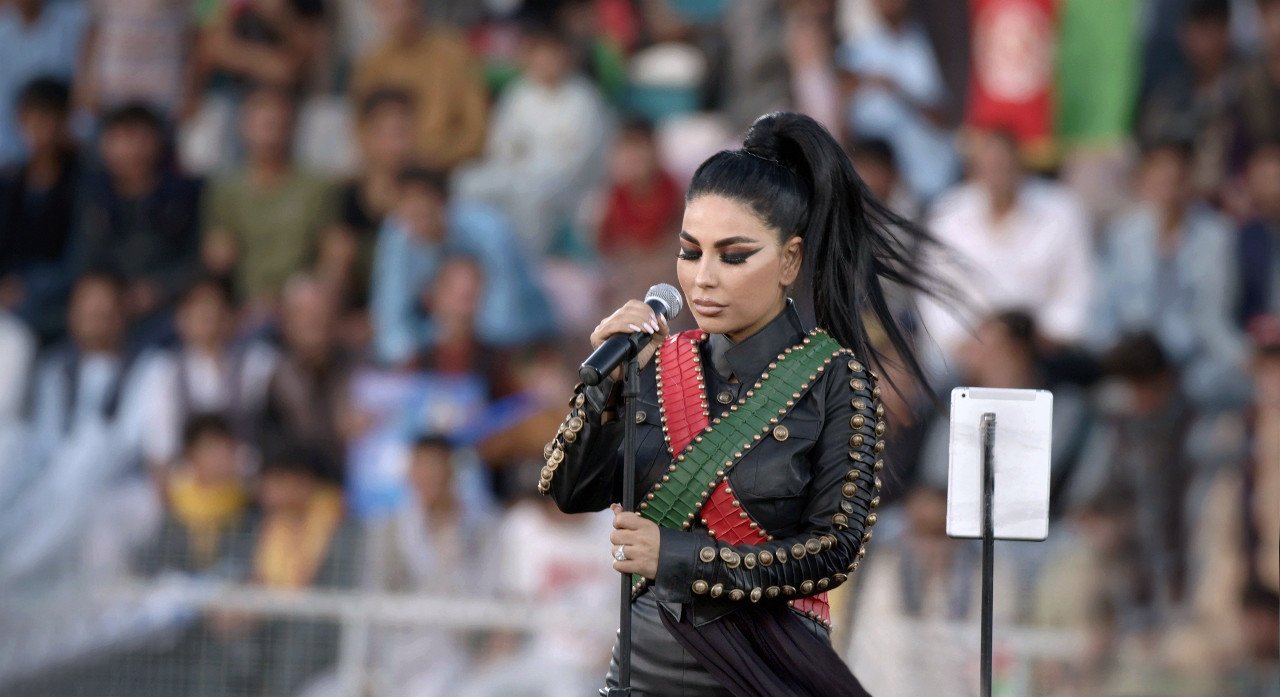And Still I Sing: A Victory for an Afghan Woman Singer, A Tragedy for a Country
By Liam Lacey
Rating: B+
The most popular television show in Afghanistan in the last two decades was an American Idol-style show called Afghan Star.
The show gave its title to a documentary by British filmmaker Havana Marking, which won Audience and Directing awards at the 2009 Sundance World Documentary Competition. That film followed four contestants in the show’s third season, including two women, as a lens onto Afghanistan’s ethnic divisions, and the challenges and hopes for more liberty from a young generation who, as one commentator put it, were ready to exchange “guns for music.”
Now there’s a new documentary, And Still I Sing, from Afghan Canadian director Fazila Amiri, a kind of sobering sequel to the earlier film, focusing two women competitors and friends, Zhara Elham and Sadiq Madadgar, who competed in 2019 version of the program.
We first meet the them as they are singing together in their shared apartment. Zhara notices that Sadiq has a livid scar on her arm. Sadiq explains that her enraged uncle shoved her because of her appearance on the television show, causing her to cut her arm on a broken dish.
Both young women had been partly raised in Pakistan as refugees from the Afghan civil war. Sadiq is a particularly dynamic example of modern independent Afghan woman: she studies pre-law at university, rides about Kabul on a bicycle, and works out at a boxing gym.
The first hour of And Still I Sing is a well-organized, relatively conventional competition documentary, as director Amiri follows them through the weekly show, and their public appearances to canvas for votes. We also are introduced to the third character in the film, the sole woman judge on the show, the glamorous Aryana Sayeed, who is the contestants’ unofficial mentor.
Now in her mid-thirties, Sayeed is a household name and an advocate for greater women’s freedom in Afghanistan. Unlike the young women contestants, she does not wear a head covering on television. She explains that, because of her popularity and advocacy, she’s a target for religious extremists. After a Paris show, where she wore a provocative nude-coloured body stocking, several mullahs called for her head.
The contestants, too, receive their share of hate but try to focus on the competition. Sadiq is sent home, devastated, but bounces back and even hangs around to coach. There’s some suspense: Zhara is convinced the popular and handsome young singer who is her last competitor is going to take the prize. But then, in March 2019 on the 14th season of the show, Zhara becomes the first woman to win the trophy, which she dedicates to the women of Afghanistan.
In the last 20 minutes, And Still I Sing becomes a different kind of documentary. We’re reminded that while the contest was holding the public’s attention, it took place under a shadow of Washington and the Taliban peace talks. Sayeed’s worst fears come true. The U.S.-led international coalition’s withdrawal and the Taliban taking control of the country, shutting down both women’s progress and putting an end to music.
The perseverance and courage of the women and the plucky title aside, And Still I Sing ends on a note of mourning more than inspiration. The film slips ahead from 2019 to the 2021 U.S. troop withdrawal and scenes of chaos at the Kabul airport as people try to leave the country. We follow the outcome for each of the three women, one of whom stays behind, no longer able to listen to music, just the ugly rattle of gunfire each night.
And Still I Sing. Directed by Fazila Amiri. With Aryana Sayeed, Sadiq Madadgar and Zarah Elham. Opens at Toronto’s Hot Docs Cinema October 21.



